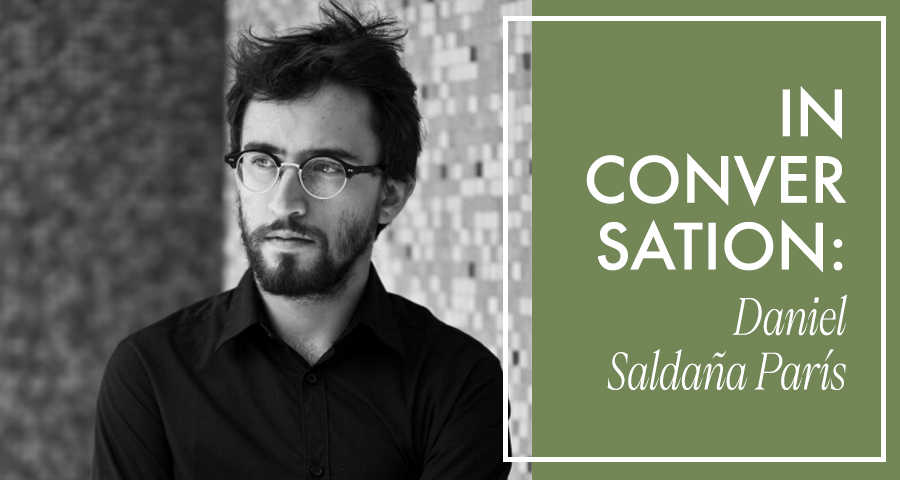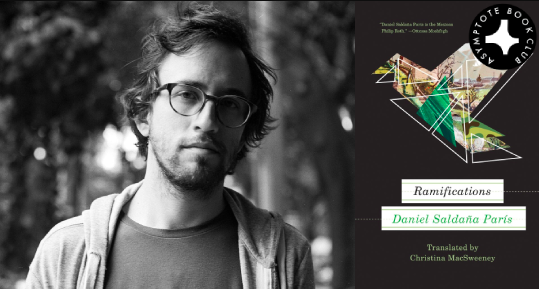Daniel Saldaña París’s novel, The Dance and the Fire, recently published in Christina MacSweeney’s translation, is a sophisticated tour-de-force centering the ungovernable forces that nourish, propel, and destroy us. In it, three estranged childhood friends are reunited as wildfires close in on the city of Cuernavaca. Besieged by inexorable change and irretrievable intimacies, the trio narrates a carnivalesque Armageddon woven from dance plagues, religious fanaticism, and natural disaster. París’s cerebral, compassionate prose encompasses a vast range of lived experiences, including the domestic, the uncanny, and the beautifully flawed.
The Dance and the Fire is a journey through the past and the present, heading into the unspeakable core of being human. As a fan of both his earlier essay collection, Planes Flying Over a Monster (also translated by MacSweeney), and this most recent work, I was thrilled to be able to speak with Saldaña París about his writing, its major themes, and inspirations in this interview.
Sofija Popovska (SP): In Planes Flying Over a Monster, you weave personal memories together with an eclectic mix of historical anecdotes. Natalia, the first narrator in The Dance and the Fire, seems to share your archival bent, and so does the father of the third narrator, Conejo. It looks like they process how they feel about where they are at the moment by engaging with stories from the past. What does this “historian’s compulsion” mean to you?
Daniel Saldaña Paris (DSP): It’s the way I experience places. I’m in New York City right now, for example, and when I walk these streets, I always remember that the first non-native inhabitant of Manhattan was a Black man from Santo Domingo who spoke Spanish and arrived with Dutch merchants. That detail reminds me how deeply my language is interwoven with this city, and it changes how I see the place. Archives are not dead tools; they’re the original augmented reality glasses.



